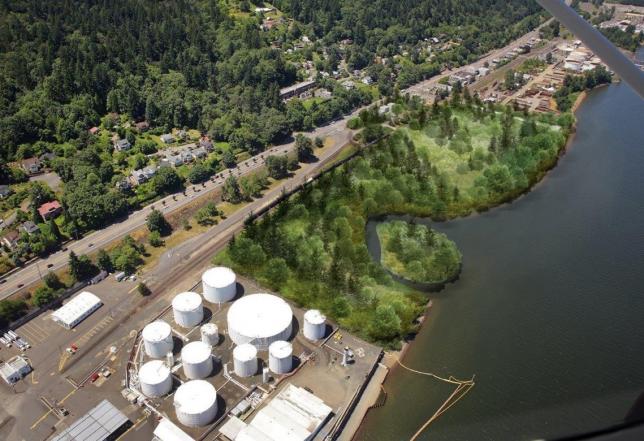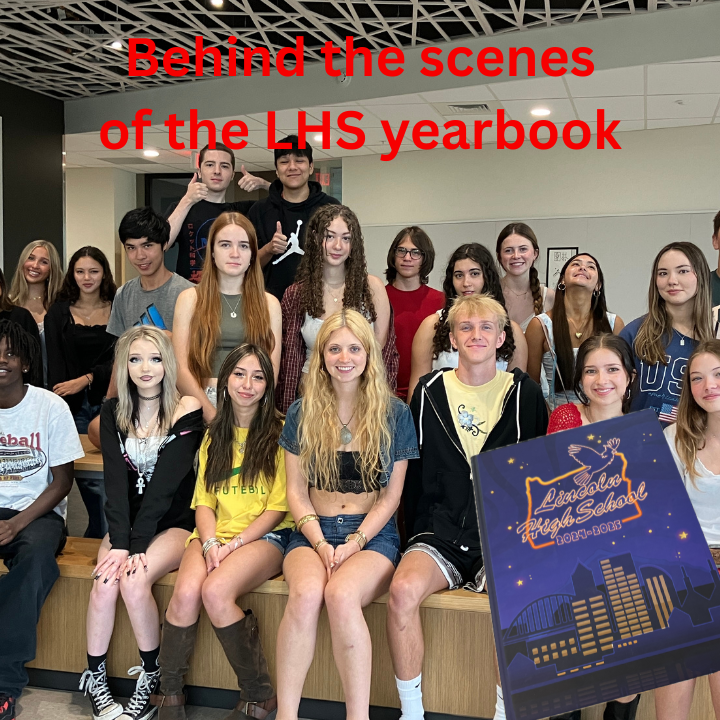The fascinating history and presence of the Linnton community
Linnton is a historic neighborhood that feeds into Lincoln. With its proximity to the Willamette River, various communities have once called Linnton home. Today’s industrialization has disrupted this peaceful and resourceful community.
April 19, 2023
Linnton, a neighborhood located between Forest Park and the Willamette River has a history dating back to 1843. A short recounting of the neighborhood reveals systemic racism and violence that have led to current day health hazards and isolation.
Linnton was once home to many diverse groups of people, including but not limited to Native Americans, Chinese and Black people. With close proximity to the Willamette River and Guild’s Lake, the Linnton community was full of plentiful resources. The development of lumber mills in the early 1900s attracted workers, most workers were immigrants who lived in public housing in Linnton.
In 1883, one year after the Chinese Exclusion Act restricted immigration into the United States, 30 Klu Klux Klan (KKK) members rampaged the neighborhoods surrounding Guild’s Lake, previously located in Linnton. The KKK burned down Asian workers’ farmhouses and destroyed their crops.
In the early 1920s, the Port of Portland dumped 25 million cubic yards of silt into Guild’s Lake, according to Columbia River Keeper. Racism and rapid industrialization dispossessed farmers and local families from their homes in the Linnton community.
Private and tax-funded industries funded the creation of hundreds of chemical tanks residing along the banks of the Willamette River. According to Portland Clean Air, these tanks make up for 90% of Oregon’s petroleum supply, called the Critical Energy Infrastructure Hub (CEI). The CEI imports three billion gallons of petrochemicals annually.
Today, residents of the Linnton community are arguably the most vulnerable to the health risks of industrialization. Toxins emitted from chemical trucks, trains and tanks greatly increases the chances of developing terminal illness that can be passed through generations.
In response, Linnton community members created the Braided River campaign during the summer of 2020. The mission is “to realize a sustainable, diverse, safe green working waterfront on the lower Willamette that acknowledges the climate crisis, systemic racism and the health impacts of sacrificial zoning in the Portland Harbor through community-driven land use processes.”
Retired midwife, soccer coach and principal Sarah Taylor is the founder of the Braided River Campaign as well as the head of Linnton’s neighborhood association. As a resident of Linnton for 33 years, she has witnessed the negative effects of industrialization on the Linnton community.
Taylor advocates for the health of the community and access to public resources, while calling attention to the dangers of industrialization. Through her activism, Taylor has become aware of the blatant disregard for the Linnton community.
“Having the city acknowledge Linnton exists would require them to accept that what they did was wrong,” said Taylor.
Taylor says that without accountability, the government and private industries will ruin the possibility of sustaining Linnton’s future.
The predicted 7.1+ magnitude of the Cascadia earthquake would rupture the oil tanks and lead to substantial contamination in the Willamette River and surrounding areas. This pollution would take decades and tens of millions of dollars to clean up, yet Taylor says the city still sits on their hands.
“It’s not so much the industrialization that affects me, but the city’s reaction to it, to our protesting. It has broken my heart,” said Taylor.
Junior Marlee Eskander lives in St. Johns, which is directly across the river from Linnton. Her proximity to Linnton and involvement in the Environmental Justice Class has shown Eskander that there is an urgency for change.
“I don’t want to be living in a place like that. I feel really sympathetic for the people who live in Linnton,” she said.
Abandonment and ignorance of the Linnton community has driven away past residents and has now become disconnected from the city.
Junior Declan McCurdy lives in Linnton and says it is an inconvenience for him and his family.
“It’s not great. You can’t really go anywhere. Everything is far away. It’s hard to live in Linnton and go to Lincoln because there’s no buses and it’s a 20 minute drive. It’s just not convenient,” he said.
Taylor agrees. She lives on a dirt road with no sewer and if there’s a storm, electricity can be lost for weeks.
“It’s kind of a rugged life even though we’re in Portland,” said Taylor.
In addition to Portland’s lack of acknowledgement of the history and needs of the Linnton community, Taylor says environmental risks pose a threat to communities beyond Linnton.
“If something goes wrong in Linnton it’s going to impact everybody. It may be worse for us, but it will impact everybody,” said Taylor.
Whether you’re a Linnton resident or not, Eskander encourages people to join the fight.
“It’s really about our voices and what we choose to do with it and how we stand up for our homes,” she said.




